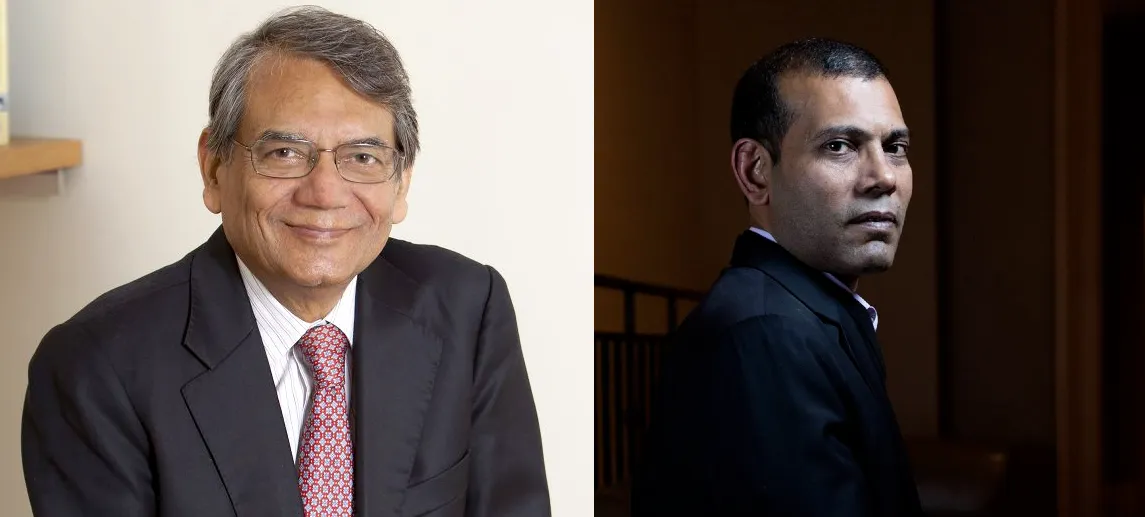Last week, the board of the International Monetary Fund approved current Managing Director Kristalina Georgieva for another five-year term. It is a welcome development that comes at a critical moment. Her second term will finish just before the end of this “make-or-break” decade for reining in climate change and delivering on the United Nations Sustainable Development Goals.
Georgieva has made significant progress in aligning the IMF with these goals. She was instrumental in the IMF’s decision to acknowledge climate change as a critical macro issue under its institutional mandate. Under her leadership, the IMF launched its first-ever climate-change strategy; created the Resilience and Sustainability Trust (RST), its primary climate-finance instrument; and fostered global dialogue on the issue through its flagship publications and research.
But now even bolder leadership is needed. As the only multilateral institution charged with maintaining global financial and fiscal stability, the IMF’s role is critical for addressing climate change. Georgieva can build on the progress made in her first term by doing four things: committing the IMF to align with the Paris agreement; ensuring that it has ample financial firepower; elevating the voices of climate-vulnerable emerging-market and developing economies (EMDEs); and mobilizing international support for climate mitigation and adaptation efforts.
The first task is the most important. All the IMF’s programs – not just those that are explicitly climate focused, like the RST – need to start promoting low-carbon development. Critically, that means avoiding scenarios that lock in fossil-fuel-intensive growth paths that will leave countries stranded in a net-zero future. All the IMF’s work must be consistent with models of inclusive growth and development, including those where value is generated from natural capital and biodiversity. Equally, the IMF’s surveillance efforts (which involve all countries, not just borrowers) should help governments identify how best to achieve their development and climate goals.
But aligning IMF financing and operations with the Paris goals will not be enough. With governments negotiating a new climate-finance goal this year, the IMF should help policymakers identify potential sources of financing and better understand the macroeconomic dimensions of the issue. This will require fresh thinking, because the evidence shows that carbon pricing will not be enough to generate the resources needed to support the net-zero transition. Robust analytics from the IMF can help to foster a global consensus on how best to generate international and domestic public finance – whether through taxation, revenue from carbon border adjustment mechanisms, or other channels.
Second, Georgieva must ensure that the IMF itself has ample financing firepower. As she has previously warned, the world is increasingly prone to a wide range of shocks, many of which would have profound macroeconomic consequences. In this fraught new setting, the IMF’s operations and balance sheet must be calibrated against what member states need to remain resilient. While the IMF Board approved a 50% increase in member states quotas (contributions) last December, that is far below the 267% increase required to meet the gross external financing needs of the most vulnerable members.
Similarly, the transition to net-zero will radically alter the economic terrain for many countries, especially those that have long relied on exporting or taxing fossil fuels. The IMF should track these trends and prepare to support countries that need help pursuing an orderly, low-carbon transition.
Third, Georgieva has a special responsibility to ensure that climate-vulnerable economies are involved in the IMF’s decision-making. These economies are more likely to seek IMF help, so it is all the more important that they have a say in how the IMF works. Yet, as of October 2022, the Vulnerable Group of 20 (V20) commands only around 5% of the voting power at the IMF, despite being home to 17% of the world’s population.
One major V20 demand is to “make debt work for the climate.” That means revising the IMF’s debt-sustainability model to incorporate urgent investment and spending needs, and to determine what it will take for each country to meet them. Implicit in this approach is a move away from conventional austerity-based measures, and toward strategies focused more on resource mobilization.
To be sure, the recent addition of a third African chair on the IMF Executive Board was a welcome development. But at the end of the day, last year’s 16th General Review of Quotas was a missed opportunity to rebalance voting power. Given that the IMF has never had a non-European managing director, it will take fundamental governance reforms to convince climate-vulnerable economies that it truly represents their interests. To that end, Georgieva should offer her support for ongoing efforts to recognize the V20 as an official inter-governmental group at the IMF.
Finally, since Georgieva cannot undertake these efforts alone, the IMF Board must support her in hiring and funding additional staff from diverse disciplines and backgrounds. Additional resources would allow the IMF to scale up its direct country engagement and ensure that national policies are tailored to local contexts. Coordination with other international institutions is also essential. The World Bank, for example, can help leverage the RST’s limited resources to mobilize more money, especially toward resiliency programs like Climate Prosperity Plans.
In her first term, Georgieva won the argument that climate change is central to the IMF’s mandate. Now, she will have to show that the institution can rise to the challenge posed by the climate crisis at this “now or never” juncture.
Mohamed Nasheed, a former president of the Maldives, is Founder and Secretary-General of the Climate Vulnerable Forum. Rakesh Mohan, a former deputy governor of the Reserve Bank of India, is a member of the Economic Advisory Panel to the World Bank President Ajay Banga, President Emeritus of the Centre for Social and Economic Progress, and a member of theTask Force on Climate, Development, and the International Monetary Fund.
© Project Syndicate 1995–2024



